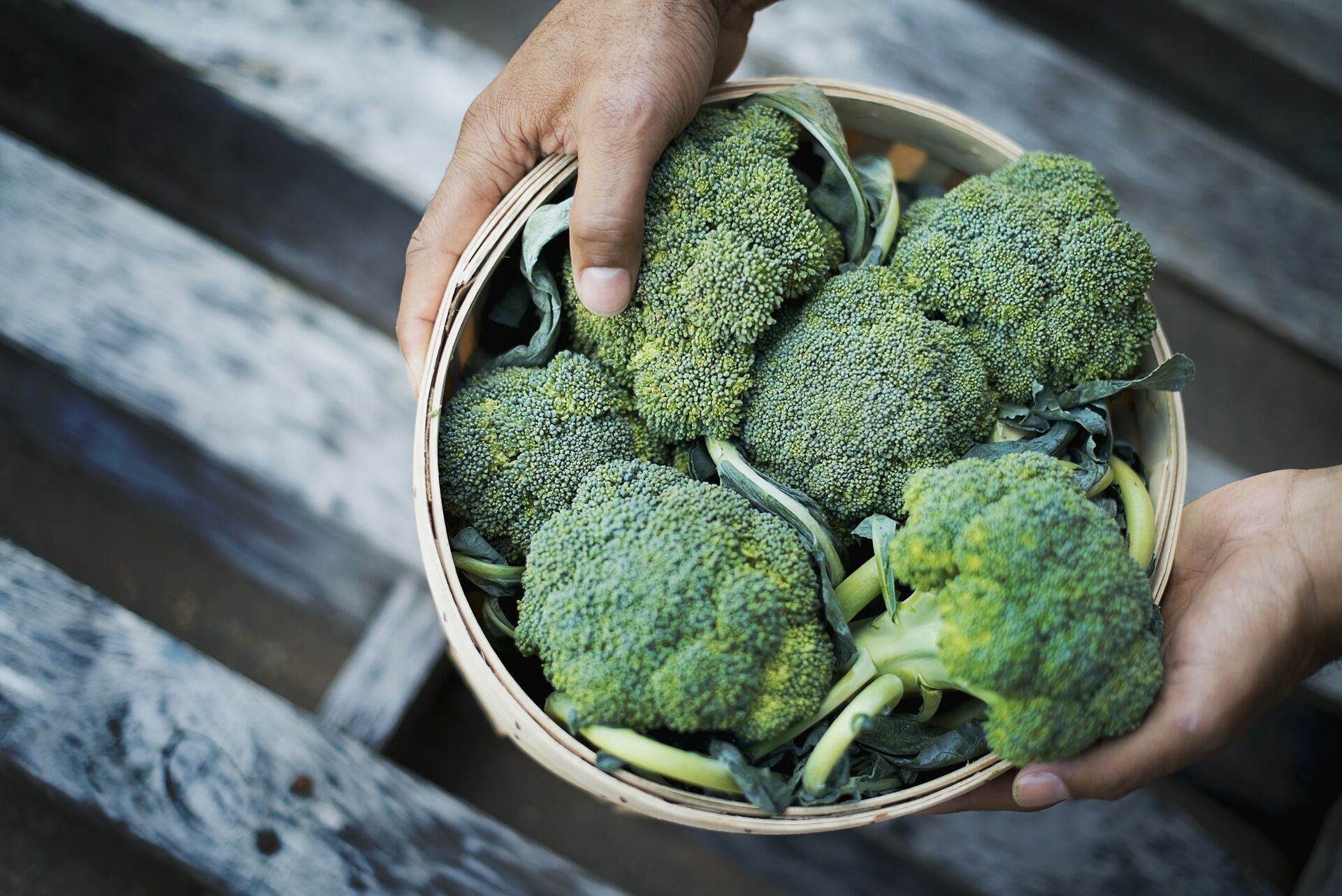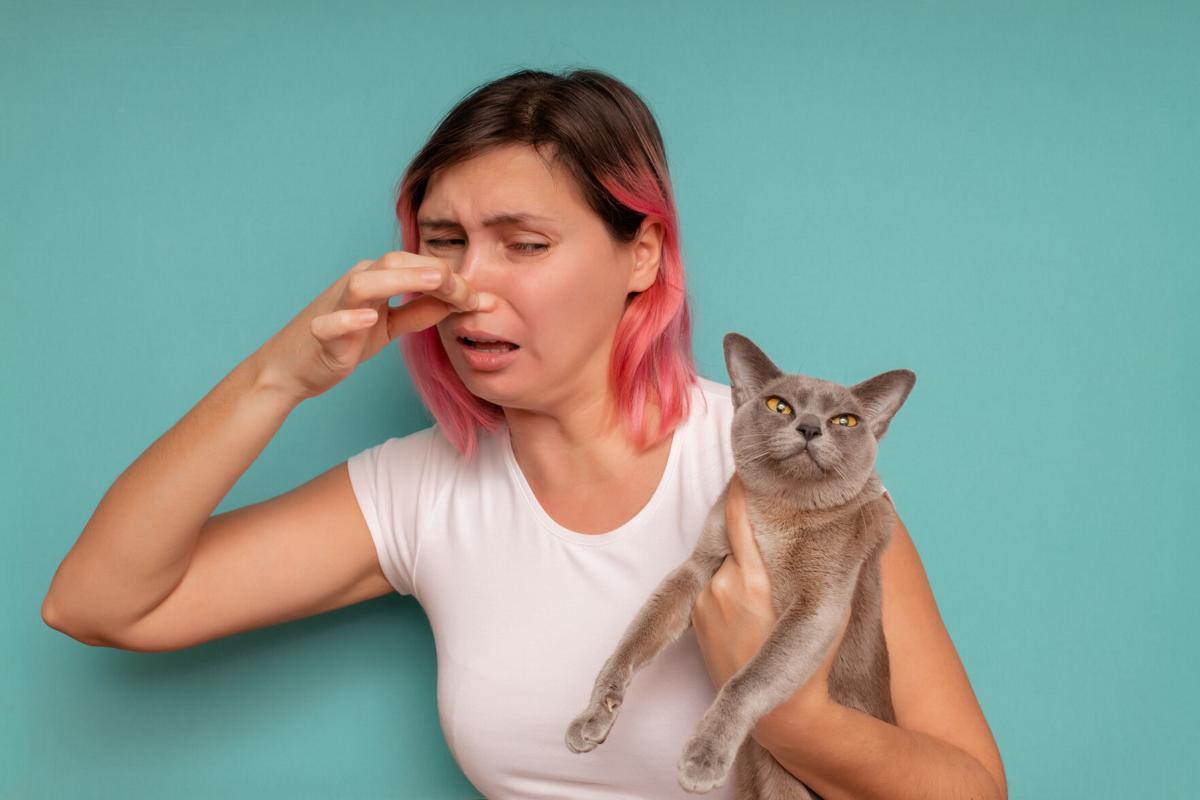

FAQs
Why Does My Dog Always Fart On Me
Modified: August 5, 2023
Find answers to general questions about why your dog has a habit of farting on you. Understand the possible causes and get tips for managing this behavior.
(Many of the links in this article redirect to a specific reviewed product. Your purchase of these products through affiliate links helps to generate commission for Under-tec.com, at no extra cost. Learn more)
Table of Contents
Introduction
Have you ever experienced the awkward and unpleasant moment when your dog decides to let one rip right next to you? It can be a challenging situation to navigate, especially if you are unsure why your furry friend is exhibiting such gassy behavior. Rest assured, you are not alone! Many dog owners have found themselves wondering, “Why does my dog always fart on me?”
Flatulence, or farting, is a natural bodily function in dogs, just as it is in humans. While occasional gas release is normal, excessive flatulence can be quite bothersome for both you and your dog. Understanding the underlying causes of excessive flatulence can help you manage this embarrassing situation more effectively.
In this article, we will delve into the world of dog flatulence to shed light on why your dog may be gassing you out. We will explore the various factors that contribute to excessive flatulence in dogs, with a particular emphasis on dietary factors. Additionally, we will provide you with helpful tips and strategies to minimize your dog’s flatulence and make your cohabitation more pleasant.
It is important to note that while this article offers valuable insights and guidelines, it is always best to consult with a veterinarian for a proper diagnosis and tailored recommendations for your specific dog.
So, if you are ready to dive headfirst into the whimsical world of dog flatulence, let’s continue!
Understanding Flatulence in Dogs
Flatulence, or the passing of gas, is a common occurrence in dogs. It is a natural part of their digestive process and is caused by the accumulation of gas in their gastrointestinal tract. The gas is then released through their rectum, resulting in the familiar sound and smell.
Dogs have a highly efficient digestive system that allows them to extract nutrients from their food. However, this process can also lead to the production of gas, especially when certain dietary factors come into play. The excess gas can accumulate in the stomach and intestines, causing discomfort and resulting in flatulence.
It is important to note that while some flatulence is considered normal, excessive or chronic flatulence may indicate an underlying health issue. If your dog is experiencing persistent flatulence accompanied by other symptoms such as abdominal pain, bloating, diarrhea, or changes in appetite, it is advisable to consult a veterinarian for a thorough examination and diagnosis.
Flatulence in dogs can be grouped into two types: audible and silent. Audible flatulence is the more common type, characterized by the sound and sometimes odor accompanying the gas. On the other hand, silent flatulence refers to situations where gas is released without any sound or odor, making it harder to detect.
While flatulence itself may not pose a serious health risk to your dog, it can be a cause of discomfort and embarrassment for both you and your furry companion. Understanding the underlying causes of excessive flatulence can help you address the issue effectively and improve your dog’s overall well-being.
In the next sections, we will explore the various factors that can contribute to excessive flatulence in dogs, with a particular focus on dietary factors. By understanding these causes, you will be better equipped to make informed decisions regarding your dog’s diet and implement strategies to minimize their flatulence.
Causes of Excessive Flatulence in Dogs
Excessive flatulence in dogs can be attributed to several factors, ranging from dietary choices to underlying health conditions. Understanding these causes is crucial in addressing the issue and improving your dog’s digestive health. Let’s explore the most common causes of excessive flatulence in dogs:
1. Diet: One of the primary culprits of flatulence in dogs is their diet. Certain food ingredients can be difficult for your dog to digest, leading to excessive gas production. Foods high in fiber, such as beans, lentils, and certain vegetables, can cause increased gas in dogs. Additionally, some dogs may have sensitivities or allergies to specific ingredients, such as wheat, dairy, or certain proteins, leading to gastrointestinal disturbances and flatulence.
2. Eating Habits: The way your dog eats can also contribute to excessive flatulence. Rapidly consuming their food or gulping down air while eating can lead to increased gas in the gastrointestinal tract. This is particularly common in dogs who are overly excited or have a tendency to eat too fast. Using specially designed slow-feeders or providing smaller meals throughout the day can help reduce the ingestion of air and minimize flatulence.
3. Table Scraps and Treats: Feeding your dog table scraps or indulging them with excessive treats can disrupt their digestion and result in flatulence. Foods that are high in fat or spices can be particularly problematic for dogs. It is important to be mindful of the ingredients in the food you offer your dog and limit their intake of foods that can lead to excessive gas.
4. Intestinal Bacteria: The balance of bacteria in your dog’s gut plays a crucial role in their digestion. An overgrowth of certain bacteria can cause fermentation in the intestines and lead to increased gas production. This can happen as a result of dietary choices or underlying health conditions. Introducing probiotics or prebiotics into your dog’s diet can help promote a healthy gut flora, reducing the occurrence of excessive flatulence.
5. Underlying Health Conditions: In some cases, excessive flatulence may be a symptom of an underlying health condition. Conditions such as inflammatory bowel disease, gastrointestinal infections, pancreatic insufficiency, and certain gastrointestinal tumors can disrupt the normal digestive processes and lead to increased gas production. If you notice persistent or severe flatulence accompanied by other concerning symptoms, it is essential to consult with a veterinarian for a proper diagnosis and treatment.
By identifying and addressing the causes of excessive flatulence in your dog, you can take steps to alleviate their discomfort and enhance their digestive health. In the next section, we will explore the role of dietary factors in dog flatulence and provide insights into common food ingredients that can cause gas in dogs.
Dietary Factors and Flatulence
Diet plays a significant role in the occurrence of flatulence in dogs. The food choices you make for your furry friend can either contribute to or help alleviate their flatulence issues. Let’s explore some dietary factors that can influence flatulence in dogs:
1. High-Fiber Foods: Foods that are high in fiber, such as certain fruits, vegetables, and grains, can cause increased gas production in dogs. While fiber is an essential component of a balanced diet, excessive intake can lead to fermentation in the gut, resulting in flatulence. It is crucial to provide a proper balance of fiber in your dog’s diet and avoid overfeeding high-fiber foods.
2. Difficult-to-Digest Ingredients: Certain ingredients are more challenging for dogs to digest, leading to increased gas production. Legumes, such as beans, lentils, and chickpeas, contain complex carbohydrates that can cause gastrointestinal discomfort and flatulence in dogs. Additionally, some dogs may have sensitivities to specific proteins, such as beef or poultry, which can contribute to digestive disturbances and flatulence. If your dog experiences excessive gas after consuming certain ingredients, it may be beneficial to eliminate or minimize their intake.
3. Allergies and Food Sensitivities: Food allergies or sensitivities can cause digestive issues, including excessive flatulence, in dogs. Common allergens include wheat, soy, dairy, and certain proteins. If you suspect that your dog may have a food allergy or sensitivity, it is recommended to consult with a veterinarian to determine the underlying cause and make appropriate dietary adjustments.
4. Fat and Spices: Foods that are high in fat or contain spices can disrupt your dog’s digestion and lead to flatulence. Fatty foods can take longer to digest, causing fermentation in the intestines and subsequent gas production. Spices, such as garlic and onion, can also irritate the gastrointestinal tract and contribute to flatulence. It is best to avoid feeding your dog foods that are high in fat or seasoned with spices to prevent excessive gas production.
5. Feeding Schedule and Portion Control: The frequency and portion sizes of your dog’s meals can influence their digestive health. Feeding large meals in one sitting can put a strain on their digestive system and lead to increased gas. Breaking down their daily intake into smaller, more frequent meals can help promote more efficient digestion and reduce flatulence. Additionally, carefully measuring portion sizes according to your dog’s specific dietary needs can prevent overfeeding, which can contribute to gas and bloating.
It is important to note that dietary adjustments should be made gradually to allow your dog’s digestive system to adapt. Abrupt changes in their diet can lead to gastrointestinal upset and flatulence. If you are considering making significant changes to your dog’s diet, it is recommended to consult with a veterinarian for guidance.
In the next section, we will delve into common food ingredients that can cause gas in dogs. Understanding these ingredients will help you make more informed decisions when selecting the right food for your dog.
Common Food Ingredients that Cause Gas in Dogs
When it comes to managing flatulence in dogs, understanding the role of specific food ingredients is essential. Certain ingredients are known to be more likely to cause gas in dogs. Let’s take a closer look at some of the common food ingredients that can contribute to flatulence:
1. Legumes: Legumes such as beans, lentils, and chickpeas are high in fiber and complex carbohydrates. While these ingredients provide important nutrients, they can be difficult for dogs to digest, leading to increased production of gas in the gastrointestinal tract. If your dog has a sensitive stomach or is prone to excessive flatulence, it may be beneficial to limit their intake of legumes.
2. Cruciferous Vegetables: Vegetables like broccoli, cauliflower, and cabbage belong to the cruciferous family and are known to cause gas in dogs. These vegetables contain sulfur compounds that can be challenging for dogs to break down, resulting in excessive flatulence. If your dog tends to experience gas after consuming cruciferous vegetables, it is advisable to serve them in smaller portions or opt for alternative vegetables that are easier to digest.
3. Dairy Products: Many dogs have lactose intolerance, which means they lack the necessary enzymes to digest lactose, the sugar found in milk and dairy products. Feeding your lactose-intolerant dog dairy products like milk, cheese, or ice cream can result in digestive disturbances, including flatulence. Consider incorporating lactose-free options or alternative sources of calcium into your dog’s diet instead.
4. Wheat and Gluten: Wheat and gluten are common allergens for dogs. If your dog has a gluten sensitivity or allergy, consuming foods containing wheat or gluten can lead to gastrointestinal issues, including flatulence. Opting for grain-free or gluten-free dog food options can help alleviate digestive discomfort and reduce excessive gas production.
5. High-Fat Foods: Foods that are high in fat, such as fatty meats or greasy treats, can contribute to flatulence in dogs. High-fat foods take longer to digest, which can lead to fermentation in the intestines and subsequent gas production. Choosing leaner protein sources and avoiding excessive fatty treats can help minimize your dog’s flatulence.
6. Onions and Garlic: These common culinary ingredients contain compounds that can cause gastrointestinal irritation in dogs. Both onions and garlic can disrupt the digestive process, leading to excessive gas. It is crucial to avoid feeding your dog foods seasoned with onions or garlic, as well as dishes containing sauces or gravies made with these ingredients.
Understanding these common food ingredients that can cause gas in dogs allows you to make informed choices when selecting their meals and treats. Every dog is unique, so it is essential to closely monitor your furry friend’s reaction to different ingredients and adjust their diet accordingly.
In the next section, we will provide you with practical tips and strategies to help minimize your dog’s flatulence and create a more pleasant living environment for both you and your furry companion.
Tips to Minimize Dog Flatulence
Dealing with excessive flatulence from your furry friend can be challenging, but there are steps you can take to minimize it. Here are some practical tips and strategies to help reduce your dog’s flatulence:
1. Slow Feeding: Encourage your dog to eat at a slower pace by using specialized slow-feeders. These feeding bowls have obstacles or ridges that make it harder for dogs to gulp down their food quickly, reducing the amount of air they swallow and minimizing flatulence.
2. Portion Control: Ensure that you are feeding your dog appropriate portion sizes based on their age, size, and activity level. Overfeeding can lead to digestive issues and flatulence. Consult with your veterinarian to determine the optimal portion sizes for your dog.
3. Avoid Table Scraps: While it may be tempting to share your meal with your dog, it is best to avoid giving them table scraps. Human food, especially high-fat or seasoned foods, can cause digestive upset and flatulence. Stick to a balanced and appropriate dog-friendly diet.
4. Dietary Modifications: Consider adjusting your dog’s diet to decrease flatulence. Switching to a high-quality, easily digestible dog food that is free from common allergens and known gas-inducing ingredients can help alleviate digestive issues. Gradually introduce any diet changes to give your dog’s digestive system time to adjust.
5. Probiotics and Digestive Enzymes: Adding probiotics or digestive enzyme supplements to your dog’s diet can promote a healthy digestive system and bowel function. These supplements can help improve the balance of gut bacteria and aid in the breakdown of food, reducing flatulence.
6. Regular Exercise: Regular physical activity helps stimulate the digestive system and promotes healthy bowel movements. Take your dog for daily walks or engage in playtime to ensure they are getting enough exercise. This can benefit their overall digestive health and reduce flatulence.
7. Limit Gas-Inducing Foods: Identify specific ingredients or types of food that tend to cause excessive gas in your dog and minimize their consumption. Legumes, cruciferous vegetables, high-fat foods, and onions/garlic are common culprits. Look for alternative ingredients or recipes that are gentler on your dog’s stomach.
8. Prevent Air Ingestion: Dogs that gulp down their food quickly also swallow excess air, leading to flatulence. Consider using puzzle toys or treat-dispensing toys that require your dog to work for their food. This helps slow down their eating and reduces air intake.
9. Regular Vet Check-Ups: If you notice persistent or severe flatulence in your dog, it is important to consult with a veterinarian. They can rule out any underlying health conditions and provide specific recommendations tailored to your dog’s needs.
Remember that every dog is unique, so it may take some trial and error to determine the most effective strategies for minimizing your dog’s flatulence. By implementing these tips, you can improve your dog’s digestive health and create a more pleasant living environment for both you and your furry companion.
In the final section, we will discuss when it is necessary to seek veterinary advice for your dog’s excessive flatulence.
When to Consult a Veterinarian
While occasional flatulence is normal in dogs, persistent or excessive flatulence could be a sign of underlying issues that require veterinary attention. It’s essential to recognize when it is necessary to consult a veterinarian regarding your dog’s flatulence. Here are some situations where veterinary advice should be sought:
1. Frequency and Severity: If your dog’s flatulence becomes more frequent or the intensity increases significantly, it may indicate an underlying problem. Excessive or persistent flatulence could be a symptom of gastrointestinal issues or digestive disorders that require veterinary diagnosis and treatment.
2. Other Digestive Symptoms: If your dog experiences flatulence along with other digestive symptoms such as diarrhea, vomiting, bloating, or changes in appetite or weight, it is crucial to consult a veterinarian. These additional signs can help in identifying the root cause of the flatulence and guide appropriate treatment.
3. Pain or Discomfort: Flatulence paired with signs of pain or discomfort, such as abdominal bloating or whining, should never be ignored. These symptoms could be indicative of more severe conditions, including gastrointestinal obstructions, inflammatory bowel disease, or pancreatitis. Immediate veterinary attention is necessary in these cases.
4. Change in Behavior: If your dog’s behavior has changed recently, such as becoming lethargic, showing decreased interest in food, or experiencing a significant decrease in energy levels, it is best to consult a veterinarian. These behavioral changes, combined with flatulence, could signify an underlying health issue that requires professional evaluation.
5. Sudden Onset: If your dog has sudden and unexplained onset of excessive flatulence, it is advisable to seek veterinary advice. This could be an indication of dietary indiscretion, intestinal infections, or acute gastrointestinal illnesses that need prompt attention.
6. Preexisting Health Conditions: If your dog has preexisting health conditions such as inflammatory bowel disease, gastrointestinal tumors, or food allergies, their flatulence should be monitored closely. Consulting with a veterinarian will help ensure that their condition is effectively managed, and any necessary adjustments to their treatment plan can be made.
Remember, the guidance and expertise of a veterinarian are invaluable when it comes to your dog’s health. They will be able to conduct a thorough examination, conduct diagnostic tests if necessary, and provide targeted treatment plans tailored to your dog’s individual needs.
If you are ever in doubt or concerned about your dog’s excessive flatulence, it is always better to err on the side of caution and seek professional veterinary advice. Your dog’s well-being and comfort should always be a priority.
Now that you are equipped with a deeper understanding of dog flatulence and relevant strategies, you can take proactive steps to minimize flatulence and create a more comfortable environment for both you and your furry companion.
Conclusion
Flatulence is a natural process in dogs, but excessive gas can be a source of discomfort and embarrassment for both you and your furry friend. By understanding the causes of excessive flatulence in dogs, particularly the role of dietary factors, you can take proactive steps to minimize flatulence and improve your dog’s digestive health.
We explored how certain dietary factors, such as high-fiber foods, difficult-to-digest ingredients, and allergies, can contribute to flatulence in dogs. By making informed choices about your dog’s diet, including avoiding gas-inducing ingredients and introducing digestive supplements, you can reduce excessive gas production.
We also provided practical tips such as slow feeding, portion control, and regular exercise to help minimize flatulence. Additionally, we emphasized the importance of monitoring your dog’s flatulence and knowing when to consult a veterinarian if the flatulence is persistent, accompanied by pain or discomfort, or associated with other digestive symptoms.
Remember that every dog is unique, and what works for one may not work for another. It may take some time and experimentation to find the optimal dietary and lifestyle adjustments for your dog. Consulting with a veterinarian will provide personalized guidance based on your dog’s specific needs.
By actively managing your dog’s flatulence, you can create a more pleasant living environment for both you and your furry companion. A balanced approach to their diet, regular exercise, and veterinary monitoring will help ensure their digestive health and overall well-being.
So, the next time your dog decides to let one rip, you’ll be armed with the knowledge and strategies to address the situation with confidence and compassion. Here’s to a happier, less gassy dog!










